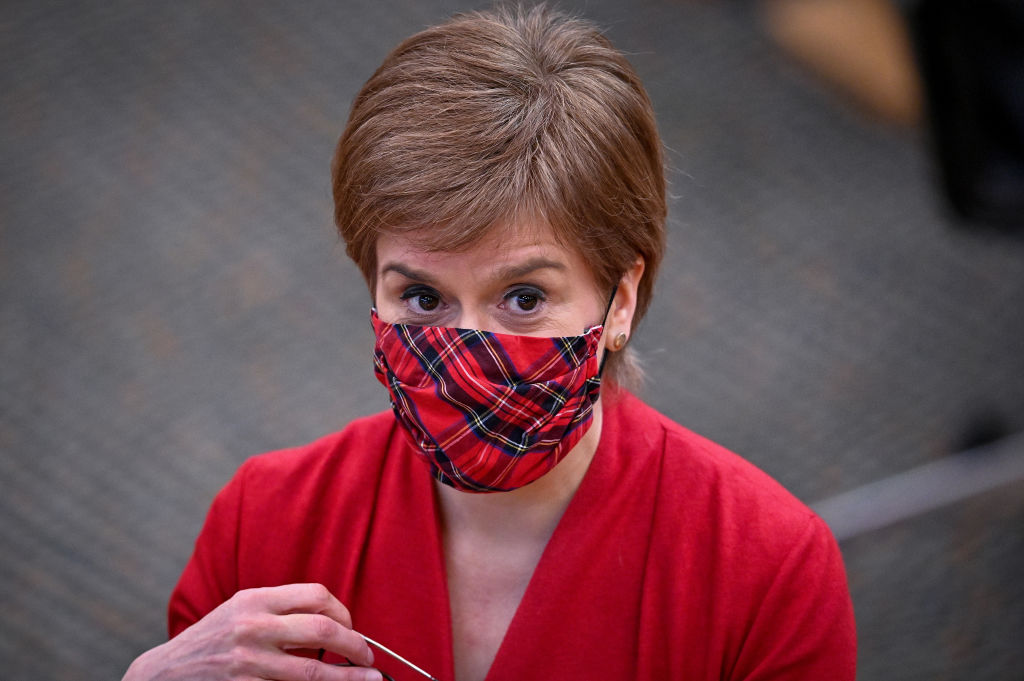Loyalty is an important virtue. Indeed, it was loyalty to my former boss which led me to offer to act as Alex Salmond’s spokesman during his Court of Session battle with the Scottish Government. It was, at the time, a thankless task, trying to persuade sceptical former media colleagues that the whole affair was a stitch-up. Those same journalists don’t require much persuasion today.
Once the Scottish Government belatedly conceded the errors in their flawed complaints procedure, at a cost to the taxpayer of at least a million pounds, and the accusations against Salmond were thrown out by a criminal court, the repercussions began.
The Scottish Parliamentary Inquiry into how the government handled the harassment process has been hamstrung by the refusal to release documents – in some cases by the government denying their existence, before finally producing them – and evasion and obfuscation by witnesses.
The affair has been hugely damaging to First Minister Nicola Sturgeon
The affair has been hugely damaging to First Minister Nicola Sturgeon. Do I believe she was behind a plot or conspiracy to bring down her former leader and mentor? No.
Remember though that the affair kicked off after Salmond had lost his Westminster seat in 2017. A subsequent scandal involving inappropriate text messages sent by SNP MSP Mark McDonald – whose constituency was adjacent to Salmond’s former constituency – led some to think that a winnable by-election could soon be on the cards.
This, according to the conspiracy theory, is why a plot was set in train to block the possibility of Salmond stepping into the potential vacancy. However, the former First Minister has told me that at no point at that time did he have any intention of returning to Holyrood.
As the committee inquiry limped on its way, damaging revelations were, piece by piece, levered out of the Scottish Government, the civil Service, the Crown Office and the SNP. Weeks then months went by as further documents, emails, WhatsApp messages and texts were revealed. Senior civil servants had to write to the committee to ‘clarify’ evidence they’d given under oath.
So what should Nicola Sturgeon have done? By last autumn, it was obvious the game was up. If, at that stage, the First Minister had ordered the release of everything the committee wanted, probably including documents of which at that stage they were still unaware, there would undoubtedly have been a media storm. But it would have been short-lived, over in a week or so. Instead, she has had to suffer month after month of a continuous drip-drip of damaging revelations.
And that, it appears, is where loyalty has come in. Like her predecessor, Nicola Sturgeon is fiercely loyal to her staff, particularly the small group closest to her. Political expedience should have seen two or three senior people being sacrificed – in popular parlance, thrown under the bus – to save her own skin.
Top of the list should have been Permanent Secretary Leslie Evans, the head of the civil service in Scotland, who defiantly proclaimed the flawed procedure ‘her’ policy. Instead, she was handed an extension to her contract. Then there’s the small matter of the First Minister’s husband, Peter Murrell, who just happens to be the SNP’s chief executive. That cosy situation should never have been allowed to exist in the first place, and he should have gone. Sturgeon’s chief of staff Liz Lloyd too should have been sacrificed.
Instead, all three – and others perhaps equally culpable – are still in their well-paid jobs, and we’re still not sure if everything relevant has been published. Full disclosure, a few bodies to satisfy the baying media mob, and a fulsome apology might well have seen the entire affair consigned to history. Instead, Nicola Sturgeon will continue to face questions over the issue for some time to come.
I have never wanted to see Nicola Sturgeon forced to resign. As a long-time supporter of Scottish independence, I still believe she is the best person to lead us to that goal. And polls show she remains extremely popular among the electorate. But one or two cold-blooded decisions last year might have saved her most of the trouble in which she now finds herself. Perhaps the First Minister’s own sense of loyalty is her weakness.






Comments